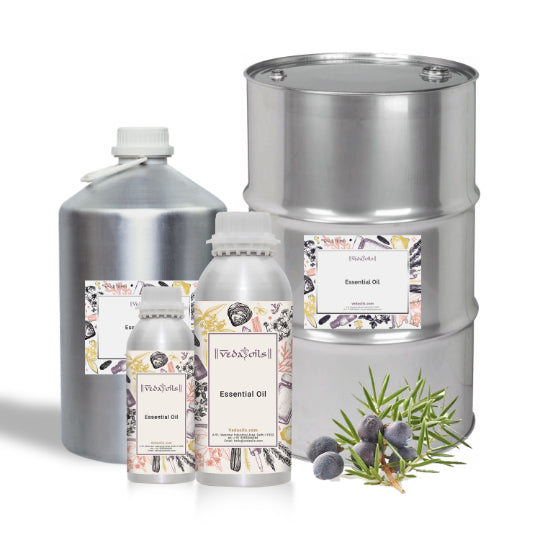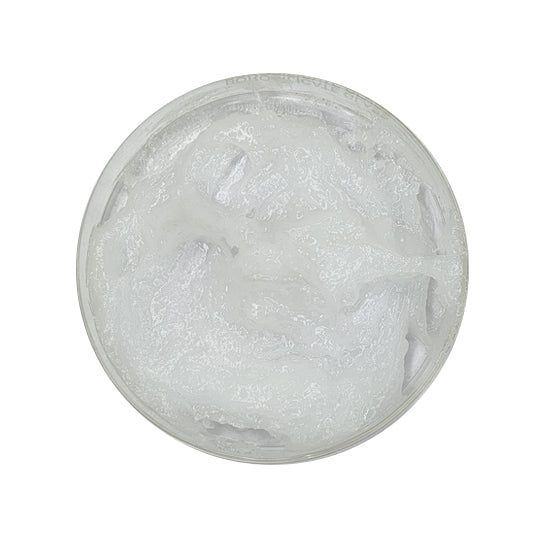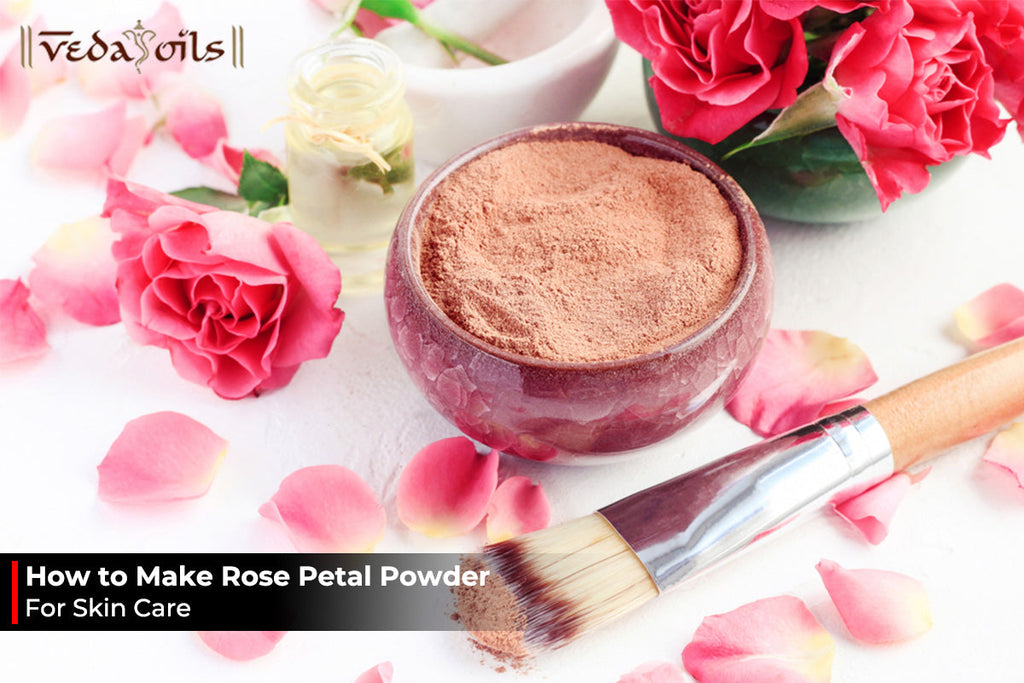Lactic Acid For Rosacea - Is Lactic Acid Good For Rosacea?
Lactic acid is an alpha-hydroxy acid derived from milk and used in skin care products to exfoliate and moisturize the skin. Rosacea causes unbearable itching and redness. Learn the benefits of lactic acid for rosacea and use it to counter redness and itching using the recipe mentioned in the following blog.

It is beneficial for people with rosacea as it helps to reduce the appearance of flaky, dry skin, draws moisture into the skin, and has antimicrobial properties that reduce the risk of infection.
What Is Rosacea And What Causes It?
Rosacea is a common chronic skin condition that affects the face, causing redness, visible blood vessels, and sometimes pimple-like bumps. It typically occurs in people over 30 and is more common in fair-skinned individuals. Causes of Rosacea are:

1. Sun Exposure: UV radiation can cause inflammation and trigger rosacea symptoms.
2. Temperature Changes: Hot weather, cold weather, and changes in humidity can all trigger rosacea symptoms.
3. Certain Foods And Drinks: Spicy foods, hot beverages, and alcohol are known triggers for some people with rosacea.
4. Stress: Emotional stress can trigger rosacea symptoms in some people.
5. Skin Care Products: Some products, including alcohol or other harsh ingredients, can exacerbate rosacea symptoms.
6. Medical Conditions: Rosacea has been linked to other medical conditions, such as gastrointestinal disorders and autoimmune diseases.
Is Lactic Acid Good For Rosacea?
You can use lactic acid for rosacea due to its gentle exfoliating and moisturizing properties. Here are a few reasons why:

1. Exfoliating: Lactic acid is a type of alpha-hydroxy acid (AHA) that can help to gently exfoliate the skin, removing dead skin cells and unclogging pores. This can be beneficial for people with rosacea, as it can help to reduce the appearance of redness and bumps associated with the condition.
2. Moisturizing: Lactic acid is also a natural humectant, which helps draw moisture into the skin. This is important for people with rosacea, as their skin is often dry and prone to flakiness, which can exacerbate the condition.
3. Anti-Inflammatory: Lactic acid has been shown to have anti-inflammatory properties, which can help to soothe and calm the skin. This is important for people with rosacea, as the condition is characterized by inflammation and redness.
Disclaimer: It's important to note that everyone's skin is different, and some people with rosacea may be sensitive to lactic acid. Additionally, it's important to avoid other triggers that can exacerbate rosacea symptoms, such as harsh skin care products and sun exposure.
Lactic Acid Benefits For Rosacea
While Lactic Acid can benefit people with rosacea, it's important to use it in moderation and avoid other triggers that can exacerbate the condition. If you're considering using a product containing lactic acid, it's always a good idea to patch-test it first and start with a low concentration. A few of its benefits are:

1. Gentle Exfoliation
Lactic acid is a mild alpha-hydroxy acid that can help gently exfoliate the skin. This can help remove dead skin cells and unclog pores, reducing the appearance of redness and bumps associated with rosacea.
2. Increased Moisture
Lactic acid is a natural humectant which can help draw moisture into the skin. This is important for people with rosacea, as their skin is often dry and prone to flakiness, which can exacerbate the condition.
3. Improved Absorption Of Other Skincare Products
Lactic acid can help to improve the absorption of other skincare products, such as moisturizers and serums. This can enhance their effectiveness and provide additional benefits for people with rosacea.
4. Anti-Inflammatory Properties
Lactic acid has been shown to have anti-inflammatory properties that can help to soothe and calm the skin. This can be particularly beneficial for people with rosacea, as the condition is characterized by inflammation and redness.
5. Reduced Appearance Of Fine Lines And Wrinkles
Lactic acid can help stimulate collagen production in the skin, improving the appearance of fine lines and wrinkles. This can be particularly beneficial for people with rosacea, as the condition can cause premature skin ageing.
How To Use Lactic Acid For Rosacea
Lactic acid can benefit people with rosacea due to its gentle exfoliating, moisturizing, and anti-inflammatory properties. When using lactic acid for rosacea, it's important to start with a low concentration and patch test the product on a small skin area before using it on larger areas.

Apply the product after cleansing and before moisturizing, and avoid using other exfoliating products while using lactic acid. Lactic acid can make your skin more sensitive to the sun, so wear sunscreen daily and avoid prolonged sun exposure. Avoid using other exfoliating products (such as scrubs or chemical peels) while using lactic acid for rosacea.
Best Lactic Acid For Rosacea
Many lactic acid brands use natural as well as chemical extracts for production. It is important to know the compositions and essential oils mixed in the product for better awareness while applying the lactic acid on the face. Some best lactic acids for rosacea are:

1. VedaOils
Vedaoils produces lactic acid liquid cosmetics of the best quality without sacrificing your health or appearance. Our cosmetic ingredients have no toxic preservatives, perfumes, additions, or fillers. Order cheap AHA raw materials for use in industrial and personal products. Various sugars and maize starch as basic ingredients were heated, ground, and processed to create the guar gum powder.
2. The Ordinary Lactic Acid 5% + Ha
This product contains 5% lactic acid and hyaluronic acid, which can help to exfoliate the skin and provide hydration gently. It's also affordable and widely available. This lactic acid also contains Tasmanian pepper berry that reduces inflammations and soothes sensitivity reactions on the skin.
3. Sunday Riley Good Genes All-In-One Lactic Acid Treatment
This product contains a higher concentration of lactic acid (5-7%) and is formulated with additional skin-soothing ingredients such as liquorice and lemongrass. It's more expensive than The Ordinary product, but it may suit those with more severe rosacea symptoms. It is available in the form of face oil.
Risk & Precaution Of Using Lactic Acid For Rosacea
Lactic acid can cause skin irritation and sun sensitivity and may exacerbate rosacea symptoms. Lactic acid can make your skin more sensitive to the sun, so wearing sunscreen daily is important.

It's important to start with a low-concentration patch test. Lactic acid may interact with other skincare products, such as retinoids or benzoyl peroxide.
Conclusion
Lactic acid can be a helpful addition to a skincare routine for some people with rosacea due to its gentle exfoliating, moisturizing, and anti-inflammatory properties. However, caution should be taken with its use to avoid skin irritation and worsening symptoms. It's always best to consult a dermatologist or healthcare provider before starting a new skincare routine. Get the best lactic acid for rosacea, shop with VedaOils. Visit us at VedaOils.com and get discounts on your first purchase.
You May Also Like:
Buy Products
-
 Bergamot Essential Oil
Bergamot Essential Oil -
 Cade Essential Oil
Cade Essential Oil -
 Cypress Essential Oil
Cypress Essential Oil -
 Lactic Acid
Lactic Acid -
 Petroleum Jelly (USP Grade)
Petroleum Jelly (USP Grade)
Related Articles
-
 DIY Tanning Oil - Best Homemade Recipes For Tan Removal
DIY Tanning Oil - Best Homemade Recipes For Tan Removal -
 Homemade Mustache Wax: Best DIY Recipe With Natural Ingredients
Homemade Mustache Wax: Best DIY Recipe With Natural Ingredients -
 Kojic Acid vs. Glycolic Acid: Which Is Better for Skin Whitening?
Kojic Acid vs. Glycolic Acid: Which Is Better for Skin Whitening? -
 5 Best Grades of Essential Oils - The Grading System
5 Best Grades of Essential Oils - The Grading System -
 How to Make Rose Petal Powder For Skin Care Homemade Recipe
How to Make Rose Petal Powder For Skin Care Homemade Recipe -
 Homemade Coffee Scrub Soap Recipe for Face & Body Care
Homemade Coffee Scrub Soap Recipe for Face & Body Care
Disclaimer :- This article is intended for informational and educational purposes only and should not be considered a substitute for professional medical advice. For specific health concerns or treatment, please consult your personal physician. The article's editor, writer, and VedaOils organization do not assume any responsibility for any health outcomes resulting from the information provided. Readers are strongly encouraged to seek advice from their physician before acting on any recommendations made in these articles.
















 Sign in
Sign in Register now
Register now My Reward Points
My Reward Points









